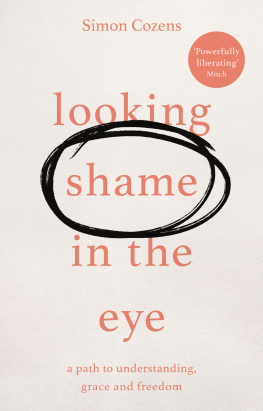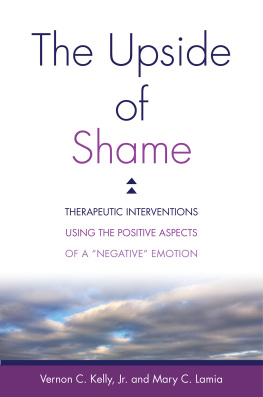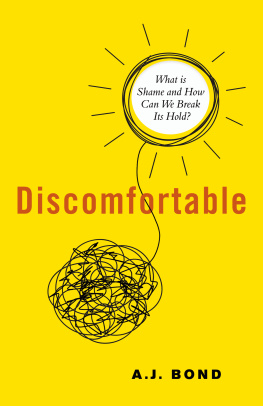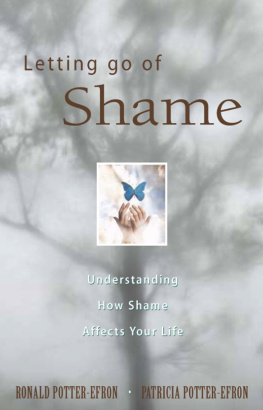Contributors
Wayne L. Alloway Jr., Senior Pastor of St. Marks United Methodist Church in Lincoln, Nebraska.
David A. deSilva, Trustees Distinguished Professor of New Testament and Greek at Ashland Theological Seminary, Ashland, Ohio.
Robert Jewett, Guest Professor of New Testament at the University of Heidelberg, Germany, and Theologian in Residence at St. Marks United Methodist Church, Lincoln, Nebraska.
James W. Jones, Professor of Religion and Adjunct Professor of Clinical Psychology at Rutgers University, New Brunswick, New Jersey, and Senior Research Fellow, Center on Terrorism at John Jay College of Criminal Justice, New York, New York.
.
John G. Lacey, Executive Pastor of St. Marks United Methodist Church, Lincoln, Nebraska.
Bruce J. Malina, Professor of New Testament and Early Christianity at Creighton University, Omaha, Nebraska.
Victor H. Matthews, Professor of Religious Studies and Dean of the College of Humanities and Public Affairs at Missouri State University, Springfield, Missouri.
Stephen Pattison, Professor of Religion, Ethics and Practice at the University of Birmingham, United Kingdom.
David M. Rhoads, Professor of New Testament Emeritus at the Lutheran School of Theology, Chicago, Illinois.
Sandra Roberts Rhoads has served as a prison counselor in Wis-consin.
Thomas J. Scheff, Professor of Sociology Emeritus at the University of California, Santa Barbara, California.
Anne E. Streaty Wimberly, Professor of Christian Education at the Interdenominational Theological Center, Atlanta, Georgia.
Edward P. Wimberly, Professor of Pastoral Care and Vice President of Academic Affairs/Provost at the Interdenominational Theological Center, Atlanta, Georgia.
Introduction
Wayne L. Alloway Jr.
Y ears ago, in one of the first churches I served following my ordination, there was an old World War II veteran who always sat in the back pew and refused to come forward to receive communion. While shaking my hand on his way out of the sanctuary the last Sunday of my tenure, he broke down in tears and asked if we could speak privately. He came to my office and unburdened himself through sobs of sadness and shame. He told me he had been an Army sergeant in the Philippines during the war, and one of his job duties was to pull the lever on the hangmans platform at the execution of convicted Japanese war criminals. The memory had haunted him ever since. Im ashamed, he said. I dont feel worthy of Gods love.
At another church, years later, a young man in his early thirties came to me and confessed that his swimming coach had sexually molested him while he was in middle school. He said the shameful secret had burdened him for many years, but he had been too afraid to tell anyone for fear of what they might think of him. At still another church, a woman declined to serve on the worship planning committee for fear that church members might discover her daughter was an exotic dancer, and label her a bad or incompetent mother. She believed her daughters career choice was a reflection on her character, and felt deeply ashamed.
Ive also known numerous people over the years who have refused to acknowledge the suicide of a loved one or family member because they feel guilt-ridden and ashamed by it. People are ashamed of their past, and their present. Theyre ashamed of what theyve done and theyre ashamed of whats been done to them. Theyre ashamed of their appearance, their perceived intelligence, their job, their social status, and even their families, butif they are Christianthey are seldom, if ever, ashamed of their faith or the gospel.
In todays culture, with churches standing prominently on street corners and crosses worn proudly around necks, we find Pauls remark, I am not ashamed of the gospel, (Rom 1:16) almost strange. But for those who heard Pauls letter read aloud in early Christian congregations, shame was a key issue. Recall the words in 1 Corinthians where Paul claims the Jews demand signs and Greeks seek wisdom, but we preach Christ crucified, a stumbling block to Jews and folly to Gentiles (1 Cor 1:23). Early congregations met in secret, and the cross of Christ was never openly displayed. Moreover, the cross was a sign of shameful failure for the Jews; a stumbling block for those who expected their Messiah to be a victorious warrior who would free them from Roman authority. And the message of the crucified Christ seemed folly to the Greeks who wanted proof of wisdom in their religion; a crucified savior seemed anything but wise to them. Then, theres the shame of crucifixion itself. Crucifixion was the humiliating death suffered by slaves, bandits, pirates, and revolutionaries. The crucified were stripped of their clothes, nailed naked to crossbars, and hung where their helplessness was visible to all. Crucifixion was the ultimate act of shaming someone.
Yet Paul was unashamed. He and other early Christians believed the gospel was the ultimate revelation of Gods grace. They understood that Christ was crucified because he took the side of marginalized members of society, and demonstrated they were acceptable to God. With Christ, there was no need for shame.
The essays in this book were delivered as lectures in a conference, The Shame Factor, sponsored by St. Marks United Methodist Church in Lincoln, Nebraska, in October 2010. They explore the impact and the transformation of shameful status in a variety of arenas. William Paul Young lectured on his experiences of sexual, familial, and educational abuse in Irian Jaya that led to the writing of The Shack, the best-selling religious novel. Our interview about his book opens this volume. In Shame: Theory, Therapy , Theology, Stephen Pattison has written the definitive study of toxic unwantedness, the ultimate form of social shame. His essay here explains the psychological function of chronic shame and suggests theological resources in dealing with it. Thomas Scheff has written Whats Love Got to Do with It? Emotions in Popular Songs, and contributes an essay that examines how shame is largely hidden in our society, yet many Top 40 song lyrics imply the shame and humiliation of rejection. James Jones is a pioneer in studying the impact of shame on terrorism, including Blood That Cries Out From the Earth: The Psychology of Religious Terrorism . He continues this work by discussing the link between humiliation and violence, offering a new understanding of the impact of narcissism. Anne Streaty Wimberlys essay describes the remarkable use of texts from the Epistle to the Hebrews in spirituals that deal with overcoming shame. Her studies in African American culture include Soul Stories: African American Christian Education . David Rhoads and Sandra Roberts have developed a new way to relate the doctrine of justification to shame. Combining her experience as a jail chaplain and his mastery of the New Testament, they adapt Reformation theology to the shame of crime and incarceration. Edward Wimberly breaks new ground in linking Wesleyan theology to the experience of blacks in America. His essay extends the analysis in his book Moving from Shame to Self-Worth: Preaching and Pastoral Care.
Victor Matthews has led the paradigm shift on shame issues in his field through many publications, including More Than Meets the Ear: Discovering the Hidden Contexts of Old Testament Conversations . In our volume, he shows how the avoidance of shame functioned in the ethical system of ancient Israel. Bruce Malina initiated the study the New Testament texts in the light of anthropological investigations of honor and shame. Having written The New Testament World: Insights from Cultural Anthropology , his essay analyzes the role of envy in the hostility of the high priests against Jesus. David deSilva is a leader in applying classical references to honor and shame to biblical writings. Having written Despising Shame: Honor Discourse and Community Maintenance in the Epistle to the Hebrews , his essay in our volume analyzes how 1 Peter employs honor in dealing with the experience of social shame in the early church. The Jewett essay offers new insights about praying on the street corner and similar behavior, motivated by the desire to earn social status and the triumph of ones sect. The volume concludes with a sermonic essay by John Lacey that connects biblical texts with Billy Joels song Shameless .










